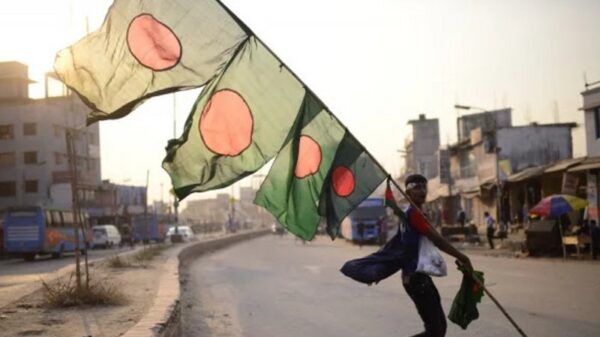The BRICS Urban Future Forum in Moscow, held on September 18-19, drew more than 13,000 participants from over 30 countries, despite a boycott by mainstream Western policymakers. Chaired by South Korean Nobel laureate Rae Kwon Chung, the forum featured a range of prominent speakers, including mayors from major cities in Asia, Africa, and the Middle East, as well as notable figures such as Stanford biochemist Thomas Südhof and economist Jeffrey Sachs.
With projections indicating that half of the world’s megacities will soon be in BRICS nations, the forum emphasized the importance of sharing best practices in sustainable urban development.
Moscow, with a population estimated between 13 and 17 million, showcased significant urban advancements. The city is actively rolling out new underground transit lines and high-speed rail services, while robotic janitors and delivery bots have become commonplace. Most services, from booking doctor’s appointments to processing documents, are now available online. Nearly one-third of Moscow’s locally made buses are all-electric, exceeding the EU average, and electric river streetcars further enhance the city’s green credentials.
Additionally, the FacePay system, which allows users to pay for public transport or shopping by simply scanning their faces, is gaining popularity across the city.
Moscow is promoting its development model for managing rapid urbanization to fast-growing nations in the Global South. “We have a lot to share with countries facing the challenges of a rapidly growing urban population and industrial development,” said Moscow Mayor Sergei Sobyanin on his Telegram account. “We believe that ‘the Moscow model’ works and are happy to help.”
During the forum, Sachs highlighted the need for broader global cooperation, stating, “There is cooperation between the BRICS countries, which is fantastic. However, I wish to see that extend to the United States and Russia, and between the United States and China. The goal should be collaboration, not the emergence of opposing camps that further divide the world. Unfortunately, such cooperation is absent at the moment.”
The forum reinforced a collective commitment among BRICS nations to address urban challenges, fostering a vision for a more sustainable future amid ongoing global uncertainties.










































